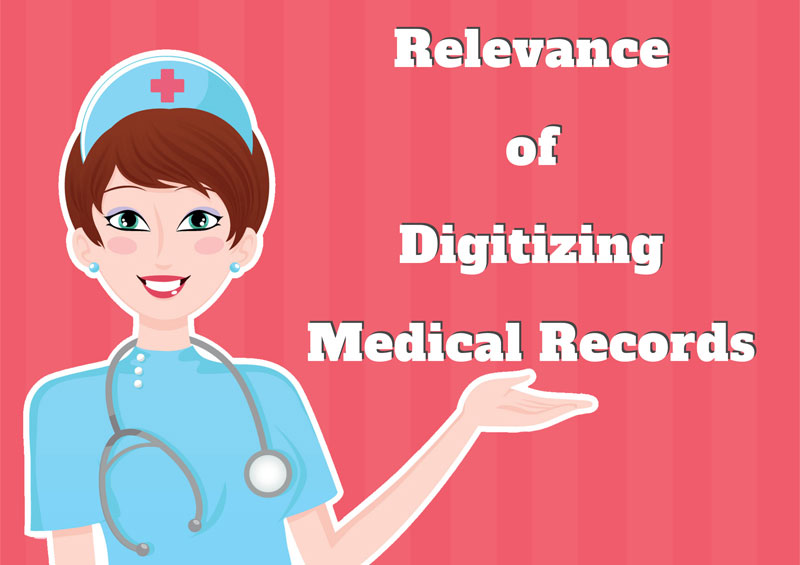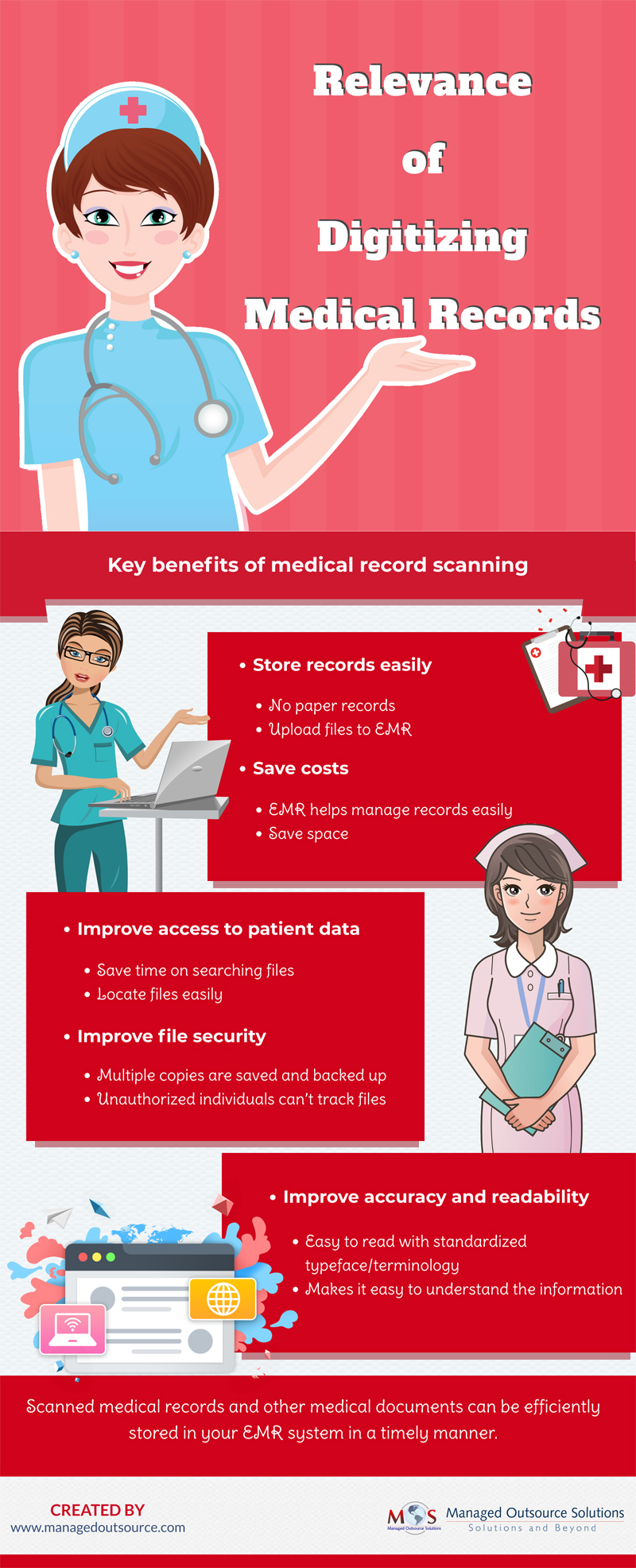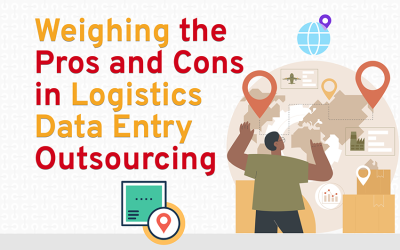In today’s electronic age, it’s vital that all medical practices have a system in place to properly store and manage patient records. As healthcare businesses are working towards operating in a paperless environment, converting all medical records into digital files helps them save time and money, lower production time, increase communication and collaboration in the team, increase accessibility, free up office space, streamline patient processes and quality of care, and eliminate the risks of misfiling and accidental loss of records. Additionally, digitization of medical records also allows the medical facility staff to focus on their core competencies.
Hospitals, clinics and other healthcare facilities rely on document scanning services to make the digital transformation easier. Partnering with professional medical document scanning services is a smart choice for managing medical records. Relying on less-trained in-house staff can lead to revenue losses and compromise the quality of patient care. A reliable service provider can scan medical records and other medical documents efficiently so that they are stored in your system in a timely manner, and also ensure that only authorized users have access to patient information. They also index the digitized medical documents for easy and instant retrieval. Prioritizing the quality of medical record scanning is crucial for delivering superior patient outcomes and meeting industry standards.
Check out the infographic below





